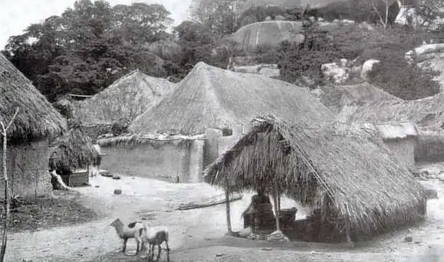
support@yorubalibrary.com
+2348073529208, 07038599574

The family unit is fundamental in Yoruba culture, playing a central role in the social, economic, and spiritual lives of its members. Understanding the structures and roles within Yoruba families offers insight into the values and traditions that shape this vibrant society.
The Importance of Family in Yoruba Culture
Family in Yoruba culture is considered the cornerstone of society. It encompasses not only the nuclear family but also extended relatives, forming a closely-knit community. The strong emphasis on family ties ensures support and solidarity among members.
Traditional Family Structure
The traditional Yoruba family structure is hierarchical and patriarchal, with clear roles and responsibilities assigned to each member.
The Role of the Father
The father, or "baba," is the head of the household. He is responsible for providing for the family's material needs, making major decisions, and representing the family in the community. His authority is respected and upheld by all members.
The Role of the Mother
The mother, or "iya," plays a crucial role in nurturing and managing the household. She is responsible for childcare, cooking, and maintaining the home. The mother's influence extends to social and religious aspects, often guiding the family's spiritual practices.
Roles of Children
Children are highly valued in Yoruba families, seen as blessings and the future of the lineage. They are expected to obey and respect their parents and elders. From a young age, children are taught their roles and responsibilities within the family, which include assisting with household chores and participating in family rituals.
Extended Family
The extended family includes grandparents, uncles, aunts, and cousins. These relatives often live in close proximity and play active roles in the upbringing and support of children. The extended family provides a broader support network, ensuring that each member's needs are met.
Gender Roles and Expectations
Gender roles in Yoruba families are traditionally defined but have evolved over time. Men and women are expected to fulfill specific duties that complement each other, ensuring the family's well-being.
Male Responsibilities
Men are primarily responsible for financial support, protection, and decision-making. They are often involved in occupations such as farming, trading, and craftsmanship.
Female Responsibilities
Women are tasked with domestic duties, childcare, and supporting their husbands. They also engage in trading and small-scale businesses, contributing to the family's income.
The Role of Elders
Elders hold a revered position in Yoruba families. They are seen as custodians of wisdom, traditions, and customs. Elders provide guidance, settle disputes, and are often involved in significant family decisions. Respect for elders is deeply ingrained in Yoruba culture.
Marriage and Kinship
Marriage is a significant institution in Yoruba culture, forming the basis of family and kinship ties. It involves elaborate customs and ceremonies, symbolizing the union of two families.
Marriage Customs
Traditional Yoruba marriages include several stages: the introduction, engagement, and wedding ceremony. These events are celebrated with feasting, dancing, and gift exchanges. The bride price, or "owo ori," is a symbolic payment made by the groom's family to the bride's family.
Kinship Ties
Kinship extends beyond the immediate family to include in-laws and distant relatives. These ties are strengthened through marriage, fostering alliances and mutual support among different families.
Contemporary Changes
While traditional structures and roles remain significant, contemporary Yoruba families have adapted to modern influences. Education, urbanization, and economic changes have led to shifts in family dynamics and gender roles.
Education and Employment
Increased access to education and employment opportunities has empowered women and altered traditional gender roles. Both men and women now share responsibilities in providing for the family and raising children.
Urbanization and Nuclear Families
Urbanization has led to the emergence of nuclear families, with many Yoruba people living away from their extended families. Despite this, the importance of maintaining strong family connections persists.
Preserving Family Values
Efforts to preserve Yoruba family values are crucial in maintaining cultural heritage. Cultural organizations, community programs, and educational initiatives aim to teach younger generations about their family roles and responsibilities.
Community Support
Community support plays a vital role in preserving family values. Social gatherings, festivals, and religious events provide opportunities for families to bond and reinforce their cultural identity.
Conclusion
Yoruba family structures and roles are integral to the cultural fabric of the Yoruba people. While contemporary changes have influenced these traditional roles, the core values of respect, support, and unity remain strong. Understanding and preserving these family dynamics are essential in maintaining the rich heritage of Yoruba culture.

Learn about the Yoruba concept of Ìwà Pẹ̀lẹ́ (good…

Learn special praises for Divine Being and Creator…